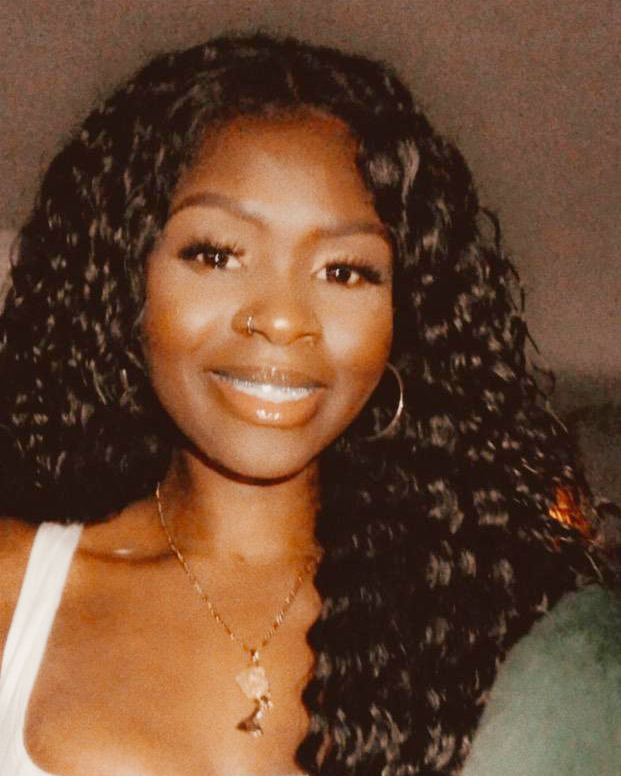MSW graduate Nyangath Diew recalls her refugee experience that led her to pursue a career in social work
by Ahliil Saitanan |

When asked what made her decide to pursue an education in social work, MSW graduate Nyangath Diew recalls a time when her family’s future was unclear.
Originally from Africa, Nyangath's family fled Sudan, now known as South Sudan, due to war in 1992. They eventually settled in the Dimma refugee camp in Ethiopia, where she was later born. Life growing up in a refugee camp was very challenging for her family, especially Nyangath, who had to grow up quicker than most young girls because her mom filled the roles of both mother and father.
One day, Nyangath's mother was crying when a United Nations social worker named Kim happened to notice. Kim took an interest because someone in the camp told her about the Diew family. She instructed Nyangath's mother to find someone to write their story and to bring it to the UN office. A few days later, they called the Diew family to interview them individually, and a couple months later, the UN approved their application to relocate to the United States as refugees.
“I remembered before we boarded our flight, … Kim was crying. I said to the translator, ‘Can you ask her why she is crying? Shouldn’t she be happy we’re finally leaving the camp?’ I can still picture her face like it was yesterday,” Nyangath says. “She turned to me and said with the biggest smile ever, ‘I’m not crying because I’m sad. I am crying because I’m happy. I know your life is about to change forever.’ I hugged her and thanked her. I told her I wanted to be just like her when I grow up.”
‘I would like to work with refugees’
Fast-forward a couple years later, Nyangath had received her BSW and has graduated from the MSW program with advanced standing during the Spring 2021 Commencement. She hopes to become like Kim, a person who dedicated her life to serving the unfortunate.
“My family and I lived at the refugee camp for years. I have seen [UN] workers risk their lives to make ours better. If it wasn’t for the people who have worked so hard to make sure my family came to America, we would still be at the Dimma refugee camp right now. I want to do my part and return the blessings me and my family received by helping others.
“I love Alaska. It will always be my second home. My family and I have been here for a few years now and made a life for ourselves. I enjoy how calm Alaska is and the relationships I have formed through my educational journey. I am not sure what the future holds, but I will let my God lead and I will follow,” Nyangath says about her plans after graduation. “All I know, as of now, is my passion has always been the desire to care for others and make the world a better place. I would like to work with refugees. My goal is to give them hope when they see me and know they can become anything they desire to be.”
‘I feel valued and welcomed at UAA’
Nyangath’s educational experience at UAA through the School of Social Work is one that she really appreciates. The support she received from her professors was what kept her going.
“Knowing that people believe in me, made me believe in myself. Whenever I am facing a challenge, I don’t feel like I am alone. The School of Social Work was always behind me and did everything they could to help, and that’s something you don’t see in a lot of schools. I feel valued and welcomed at UAA,” Nyangath says.
During her second year in the BSW program, she almost dropped out of school because she’s her own worst critic. Nyangath recalls a time when she was writing a research paper and she expressed to her professor that she doesn’t think her work is any good.
“[Dr. David Moxley] would always say, ‘What’s not good about it? Walk me through it.’ After those meetings, I always leave so empowered and think to myself, ‘Hmmm, maybe my paper wasn’t that bad after all.’ This professor would do anything to help us. He would always make time to help us with our assignments if we don’t understand something. He would free his busy schedule for us even if it means coming in during the weekends. Thank you, Dr. Moxley, for all the things you did for us. It did not go unnoticed, I promise.
“It’s people like you who change lives for the better.”
Student Stories
Research
Events and Highlights
Alumni
In the News









